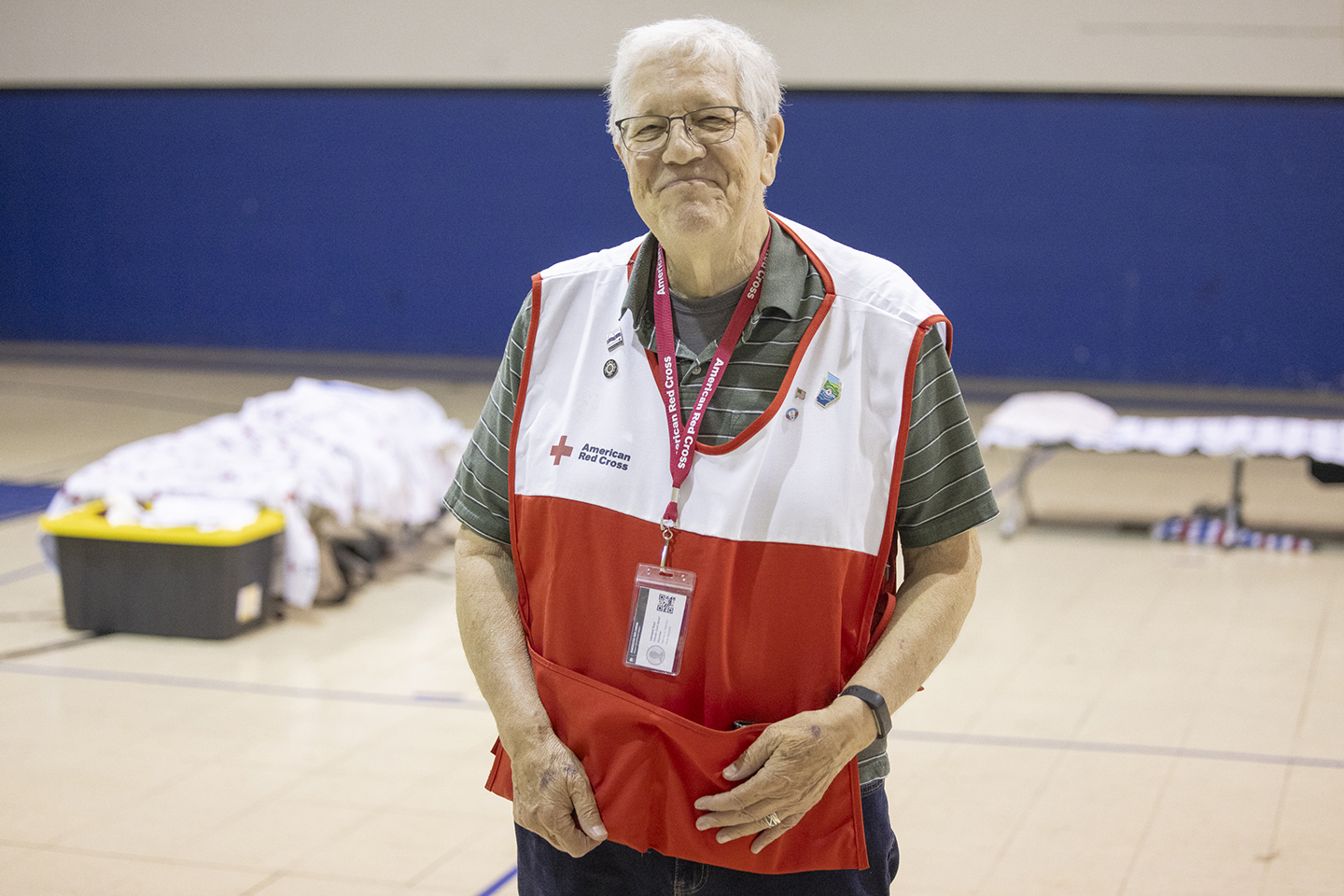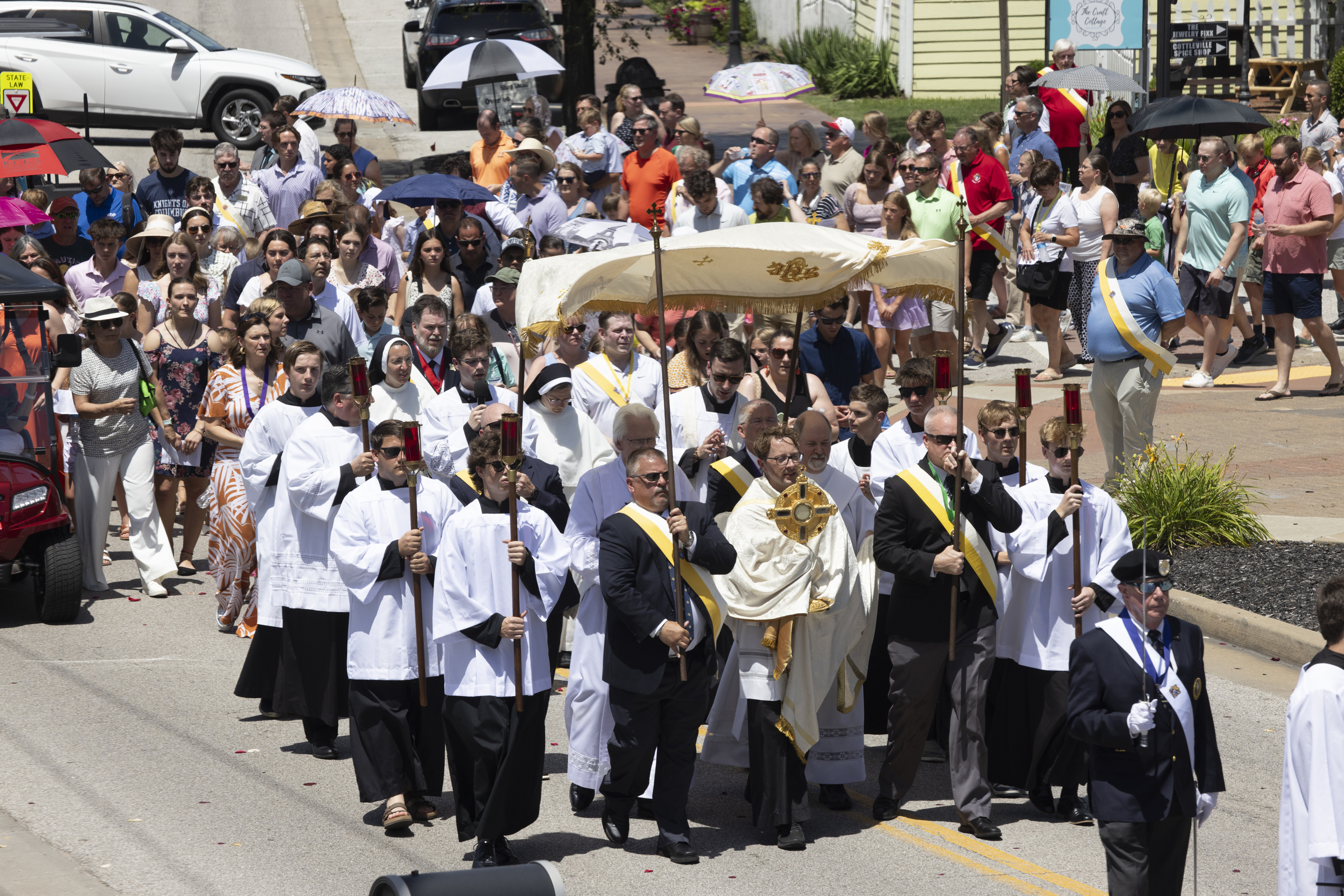Revised archdiocesan abuse policy approved
From June 2003:
Archbishop Justin Rigali has approved and distributed the revised “Pastoral Policy Regarding Alleged Cases of Sexual Abuse of Minors by Clergy or Other Church Personnel of the Archdiocese of St. Louis.”
The policy brings the archdiocese into conformity with Vatican documents, the norms established by the U.S. Conference of Catholic Bishops and canon law.
“It is my conviction that this revised pastoral policy gives evidence of our unwavering commitment to the protection of children and minors and the seriousness with which we regard the possibility of a child or minor being harmed,” Archbishop Rigali wrote in a letter to priests and deacons accompanying a copy of the policy.
The Archbishop added that it also is his conviction that the policy “makes clear provision so that the rights of the accused are safeguarded and that respect is accorded them.”
The revised policy is to be posted on the archdiocese’s Web site, .
A goal in the revision was to make the policy comprehensive and concise, he stated. At the same time, he said, “every effort has been made to articulate our policy with clarity and precision.”
Extensive consultation was conducted in making the revision, he added. “Finally, before approving this policy, it was presented to our Gennesaret Committee for the observations and suggestions of its members.”
The Gennesaret Committee advises the Archbishop on issues of sexual abuse of minors by clergy.
Mercy Sister Carol Ann Callahan, a social worker at St. Augustine Wellston Center, is chairperson of the Gennesaret Committee. She said the policy is “very well thought-out. It’s a workable document and is at the heart of why we’re an advisory board. What we’re all about is the protection of children.”
The policy states that an allegation of sexual abuse of a minor “has serious consequences for the person alleged to have been abused and his/her family, for the person accused and for the larger community.”
The policy adds that no person with a substantiated allegation of sexual abuse of a minor will serve as a member of the clergy in active ministry or hold a position working in proximity to children as an employee or volunteer in the archdiocese or in any parish, school or agency of the archdiocese.
“By following this policy, the archdiocese hopes to offer spiritual and psychological assistance as needed to any victim/survivor and to respect the civil and canonical rights of the accused while seeking to assist him or her,” the policy explains.
The process of addressing allegations includes four elements: A review board established by the Archbishop, whose mission is to assist him in responding to allegations and regularly review policy and procedures; a review administrator appointed to serve as the contact person for receiving allegations and maintaining the process of addressing allegations; review teams who will conduct a fact-finding investigation; and assistance coordinators who will aid in the immediate pastoral care of persons who make an allegation.
Bernard Huger, legal counsel for the archdiocese, said that the revision puts into place the norms established in the U.S. bishops’ “Charter for the Protection of Children and Young People” passed last year at their meeting in Dallas.
“All the dioceses need to be in compliance with those,” Huger said.
He noted that since the archdiocese put its policy into place in 1995 there have been refinements in the process as the archdiocese found ways to make the policy better.
The revisions include covering other Church personnel as well as clergy. That change meets the requirements of the bishops’ charter.
The archdiocese also revised its policy to be more specific.
Another change is that when an allegation is made, a review team is established comprising members from the review board. The team’s duty includes investigating and gathering facts regarding allegations, reporting findings to the Archbishop and providing counsel to him.
Having a smaller group of people on the review makes it more efficient when examining a complaint and also makes it easier for the person making an allegation, Huger said.
The archdiocese earlier changed the makeup of the review board so that the majority of the members are laypeople not in the employ of the archdiocese. This provision also complies with the bishops’ charter.
“The process is a little more fully written out,” Huger said. “A lot of that has come about because of the essential norms of the charter tying in how this relates to canon law.”
Last fall the archdiocese showed strong compliance with the bishops’ charter and has since worked to come into full compliance. For example, the makeup of the review board was changed to comply with the charter.
An audit of each diocese is being conducted to ensure that the charter’s norms are being followed. The bishops’ Office for Child and Youth Protection is responsible for producing an annual public report on the progress made in implementing the standards of the charter.
The goal is to protect God’s children, Huger said. “Education is a big part of it, then paying attention when people make complaints, investigating and making sure the policy is being carefully followed through.”







